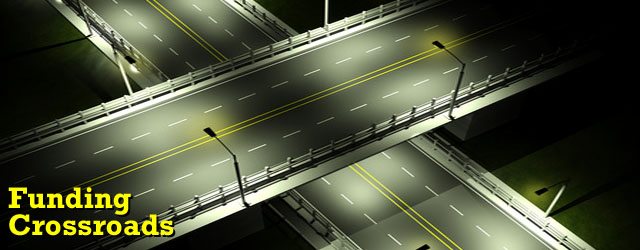Frank Scott: Investing In Infrastructure = Investing In Arkansas
by December 3, 2014 12:02 am 148 views

Editor’s note: The following guest commentary was written by Frank D. Scott, Jr., a member of the Arkansas Highway Commission. Scott, who lives in Little Rock, also serves on the Little Rock Port Authority and is a banking executive with First Security Bank.
The elections are over. (Deep sigh of relief…)
Our citizens had to make some tough decisions at the ballot box, and the people have spoken. Now it is up to our newly elected leaders to tackle the challenges facing our State and make some tough decisions in their new positions.
One of the challenges that must be addressed is how do we adequately and equitably maintain and operate our system of state highways, county roads, and city streets.
Notice I said ‘maintain and operate’ our system. The need for new or upgraded roads and bridges will always be present. But we need a stable, long-term funding mechanism to adequately take care of what we already have.
I am the newest and youngest member of the Arkansas Highway Commission, and I am humbled and very appreciative of the opportunity afforded me by Governor Mike Beebe. My background in finance and public policy has made me keenly aware of the value of good investments. I am convinced that one of the greatest investments we can make as citizens is maintaining and improving our State’s infrastructure.
Ironically, the people have already spoken on this issue – twice. In November of 2011 and 2012, the people of Arkansas went to the polls and expressed their willingness to invest in Arkansas by investing in our roadways.
The 2011 vote for the Interstate Rehabilitation Program did not include any new or additional funding. It simply allowed the Highway Commission to issue bonds – which requires a vote of the people – to rehabilitate over half of our Interstate miles. The short-term bonds are being retired using existing revenues, and motorists are already seeing the benefits of this program as improvements are underway all across our State.
In 2012, the people increased their investment in our infrastructure by voting a temporary tax on themselves. The ten-year Connecting Arkansas Program is allowing us to tackle some of our more pressing and more expensive projects aimed at increasing capacity and providing better connectivity via four-lane highways statewide.
So the people have spoken and have taken action for the short-term – action that will address needs on less than 4% of our state highway system. Now our elected officials need to address much-needed long-term solutions that will allow us to invest in many more of our highways around the State.
The reason we need to address this issue is simple – the majority of our road and bridge funding is tied to our consumption of motor fuels, which is a declining source of revenue. Look at these numbers comparing 2013 to 2007 here in Arkansas:
· Motor fuel consumption has decreased by 86 million gallons;
· Revenue from motor fuels has decreased by $54 million;
· Total miles traveled has increased 1.1 billion miles.
The Blue Ribbon Committee on Highway Finance summed up the problem best in their final report to the Governor and Legislature in 2010 when they said, “70% of our highway, road, and street funding comes from a consumption based tax, while it is a national goal to reduce consumption. This is simply a losing proposition. We’re moving backward.”
The General Assembly will be presented options on ways to address this dilemma in the 2015 legislative session. Among them will likely be the reallocation of existing revenues; increasing an existing tax or fee; or implementing a new tax or fee. It won’t be an easy decision, but it is a necessary decision. We can’t keep moving backward.
The Highway Commission will not be complacent in this matter. We will continue to pursue funding at the federal and state levels to complete important corridors like I-49, I-69, and others. But our State must quickly find adequate long-term revenue to take care of our existing roads and bridges; to provide better signage and pavement markings; to continue to implement the latest safety devices; to provide a better ride quality; to create and support jobs; and to attract and retain industry.
Arkansans have spoken at the polls. Now the General Assembly needs to take action. These are tough decisions. Arkansas needs a strong education system, we need economic development, we need jobs, and we need improved roadways. The people of Arkansas have expressed a willingness to invest in our State’s infrastructure. Our elected officials need to follow their lead. Investing in Infrastructure = Investing in Arkansas.
